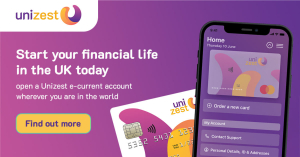Work Permits For South Africa And Further Abroad
/in Archived, News /by xp-adminWhat is a work permit?
Visas are documents that enable individuals to enter a country without necessarily having secured a contract of employment with a company. These individuals usually pay for the Visa applications themselves and are tasked with proving their ability to take care of themselves.
Work permits are exclusively based on the employment process of the individual. The approval or issuing of a work permit solely depends on the outcome of an individual’s job application. It is also not uncommon for the employer to pay or reimburse funds towards the work permit application.
Contrary to popular belief, a work permit does not entitle individuals to enter a country and start looking for work once they set foot on foreign soil. The most important concept to grasp is this: A work permit is for one specific job with one specific employer in one specific country, which is only valid for a specific period.
If anything sours the relationship between you and your employers, or your employment contract is terminated for whatever reason, then you would have to find another position and apply for a new work permit, or you will be forced to leave the host country. Failing which, you could land yourself in hot water with local authorities and face deportation and be barred from re-entering that country.
Work permits into South Africa
Immigration laws put forth by the Department of Home Affairs (DHA) govern the process of entering South African borders, especially when it is for the purposes of earning an income. Foreign workers must therefore apply and be granted the appropriate visa or work permit before starting in their work.
Work permits into Africa
While South Africa forms part of the African Union and have a vested interest in a multitude of trades and commerce across Africa, it’s dangerous to assume that it prequalifies you as a job applicant. If an African company does not have a particular skillset available to them in the local talent pool, it means your skills and qualifications will be matched against applicants from around the globe.
Work permits further abroad
If you feel the world is your oyster, you might find yourself casting applications overseas. While securing a work permit overseas sounds unattainable or even complicated, it all comes down to your ability to do a job better than anyone else in the country you are applying to.
Once you have concluded interviews and secured a binding sponsorship from an employer, the rest of the work permit application process will only change according to that country’s immigration laws.
The barrier of skills and qualifications
Skills is the buzz word blocking every jobseeker’s path to the future they hope for. Without the relevant skillsets or qualifications, it is practically impossible to find an employer to sponsor and subsequently assist you with a work permit application. With the necessary experience or degrees, it is possible to find placement with a reputable firm who can simplify or ensure compliance to the host country’s immigration laws.
Obtaining a sponsorship alone from a licensed employer, does not automatically qualify you to work for that company, or to be in that country. Some professional expatriates often reason that immigration regulations do not apply to them, but quickly discover that working without a legal permit can result in immediate deportation.







